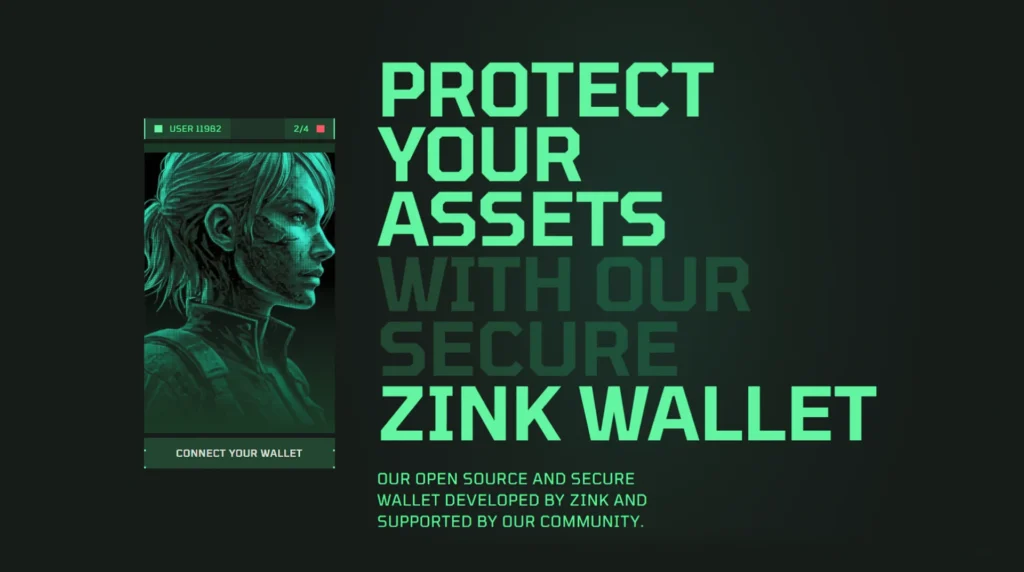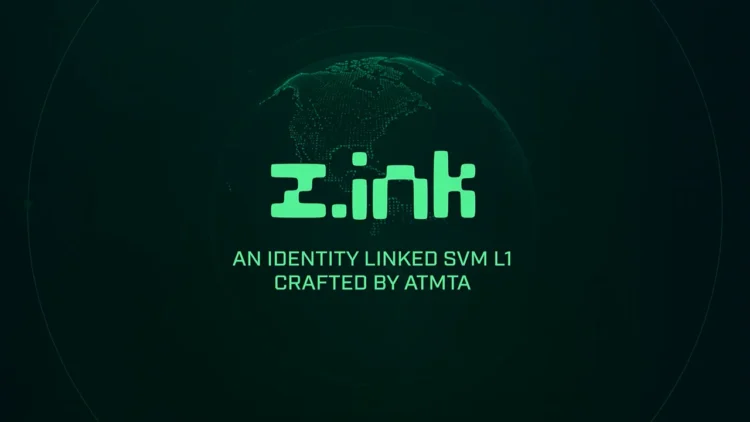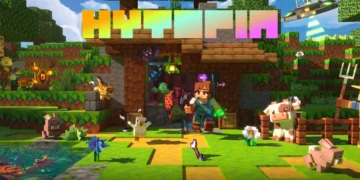Quick Take
- ZINK is a new SVM Layer 1 from the creators of Star Atlas, launching mainnet this December
- Players earn XP through onchain actions to level up zProfiles and qualify for token airdrops
- All Star Atlas onchain game logic will migrate to ZINK for lower fees and improved performance
How ZINK Grew From Star Atlas Tech Into a Gaming Blockchain
When the creators of Star Atlas first started experimenting with player identity tools in 2022, they were looking for a better way to manage user permissions across their onchain games. Those early tests, which included a backend framework called AtlasNet, eventually led to the foundation of a new blockchain. This week, that project was formally revealed during a community Town Hall.
It’s called ZINK, a Solana Virtual Machine Layer 1 chain being built as a separate network with its own token and validator set. It’s already live in test environments. The mainnet launch is expected in December.
ZINK will run all of Star Atlas’ future onchain game systems. That includes SAGE, the long-running top-down strategy module, as well as the upcoming C4 release. ZINK is being positioned as a generalist consumer chain. It’s compatible with Solana, but not tied to it. Players will be able to bridge assets between the two chains using a native tool built by the ZINK team.
While Wagner described the chain as general-purpose, its roadmap leans heavily toward gaming in the early stages. Several infrastructure tools built for Star Atlas, like the custom Unreal Engine wallet integration and a new development framework called Starframe, are being offered to external teams that deploy games on ZINK.
According to Michael Wagner, CEO and Co-Founder of Star Atlas, in a recent live Town Hall with the Star Atlas community, the new chain has been in development since 2022 and is intended to provide more control, performance, and scalability for both the game and broader Web3 applications.

Profiles Tied To Real Network Activity
At the center of ZINK is the idea of a persistent, onchain identity called a zProfile. The profile tracks every wallet interaction across the network. Players gain experience points (XP) through gameplay, dApp usage, and other onchain activity. Over time, the XP levels up the profile. The system creates a shared login layer across all dApps on the network.
Each profile is also protected by zero-knowledge proofs. That means a dApp could request a confirmation that a user has completed identity verification without accessing any of their personal data. Wagner said this model could make it easier for players to use multiple applications that require optional KYC. Rather than complete it over and over, the player would only need to complete the process once.
“We want to make that fully optional, and again, we’re going to protect the user privacy and user data by securing the underlying KYC elements with this zero knowledge proof.” — Michael Wagner
The ZINK team has also built wallet-level permissions that allow recurring transactions to be pre-approved for specific smart contracts. This gives users the option to allow certain dApps or games to manage actions without risking the rest of the wallet’s assets. A system like this is already used inside SAGE, where the cold wallet remains secure while a hot wallet session approves in-game commands.
Star Atlas Will Fully Migrate
Star Atlas will be the first ecosystem to transition fully to ZINK. Game logic for SAGE and future products will move entirely to the new chain in upcoming releases. That includes C4, which is already being tested on ZINK infrastructure. The marketplace and governance systems will remain on Solana. Assets and tokens will be bridgeable between the two.
The move is aimed at solving two problems the team faced earlier this year: rising transaction fees and performance issues on Solana during peak network activity. Wagner said the shift to ZINK will reduce fees for players by more than 99 percent. He also said Star Atlas games already generate more onchain transactions per day than many existing Layer 1 networks.
“The vision for Star Atlas is to build out this decentralized metaverse and cybernation concept, with composability and extensibility where anybody can build upon it.” — Michael Wagner
Holosim, the free-to-play Unreal Engine module that launched in July, has been running on a private cluster of ZINK infrastructure. It will remain free of transaction fees, but will also contribute to the ZINK airdrop campaign through XP progression.
New Token and Airdrop Campaign
ZINK will have its own native token. It replaces SOL for all transaction fees within the Star Atlas ecosystem. The total supply is currently set at 100 million, with two-thirds allocated to ecosystem growth. Wagner confirmed that this token will not replace ATLAS or POLIS, which will continue to function within the game and the DAO.
The token will launch with a three-month airdrop campaign beginning in September. XP earned through Star Atlas gameplay and ecosystem activity will convert into ZINK Points, which will determine a user’s share of the token allocation. Premium subscription tiers will allow users to earn XP multipliers during the campaign. These subscription levels also include benefits across Star Atlas products like Holosim.

Players already active in the ecosystem will be automatically eligible. Actions like staking in the DAO, completing races or combat in Holosim, and trading on the marketplace will all count toward XP gains.
A New Structure for Long-Term Scale
ZINK is being developed as a standalone entity under ATMTA , the parent studio of Star Atlas. The goal is to raise capital and build a dedicated team focused on Layer 1 development and ecosystem growth. Some core engineers are still contributing as the transition takes place.
In the short term, the network will remain permissioned with a controlled validator set. Over the next 18 to 24 months, the team plans to open up access and move toward full decentralization. Wagner confirmed that the Star Atlas DAO will run one of the early validators and will receive 5 percent of the token supply.
This integration creates a new revenue stream for the DAO through transaction fees and inflation rewards. It also enables the DAO to potentially subsidize player fees in the future, using the native ZINK token instead of relying on external incentives.
ZINK’s mainnet launch is expected in December. The airdrop campaign begins in September. Existing Star Atlas players will be able to connect their wallets and claim profiles when the first season goes live.
For more details you can watch the full Star Atlas Town Hall below.






